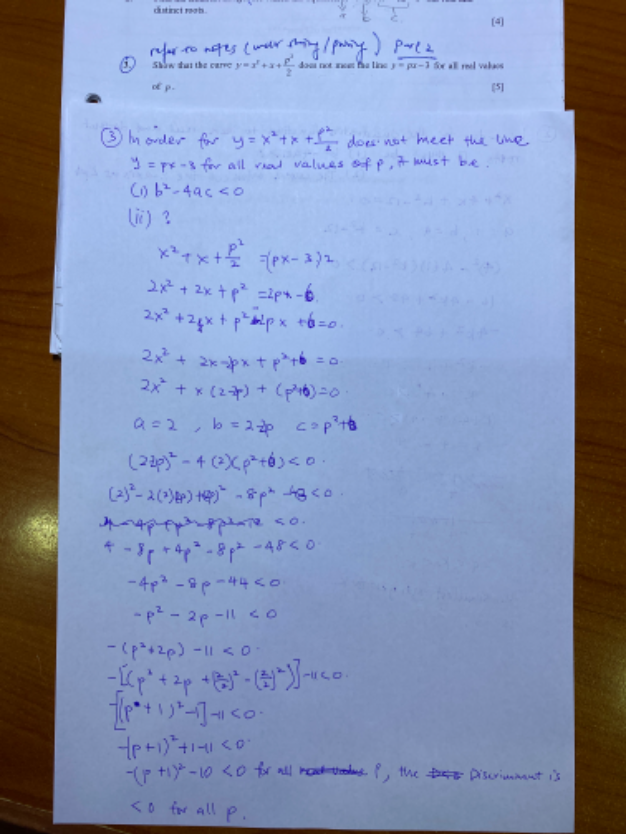
May I know what should I filled up on ii) for no real value of p? Is my ending explanation enough to ‘show’ question?


May I know what should I filled up on ii) for no real value of p? Is my ending explanation enough to ‘show’ question?
Your solution is somewhat correct, just a bit complex.
For no real roots, only need to prove that D < 0, of the resulting quadratic equation (same as all the other resulting quadratic equations in the earlier questions)
x 2 + x + (p2 /2) = px – 3
x 2 + (1-p)x + (p2 /2) +3 = 0
a = 1, b = (1-p) , c = (p2 /2) +3
D = b2 – 4ac = (1-p)2 – 4(1)[(p2 /2) +3]
= 1 -p2 -2p -2p2 -12
= – p2 -2p -11
= – [ p2 + 2p + 11 ]
= – [ (p2 + 2p + 1) – 1 + 11 ] (complete the square)
= – [(p+1)2 + 10 ]
Since [(p+1)2 + 10 ] is a positive number for all values of p, having a negative sign makes – [(p+1)2 + 10 ] a negative number.
Hence D = – [(p+1)2 + 10 ] < 0 implies that x 2 + x + (p2 /2) = px – 3 has no real roots for all values of p.
Got it, thanks.